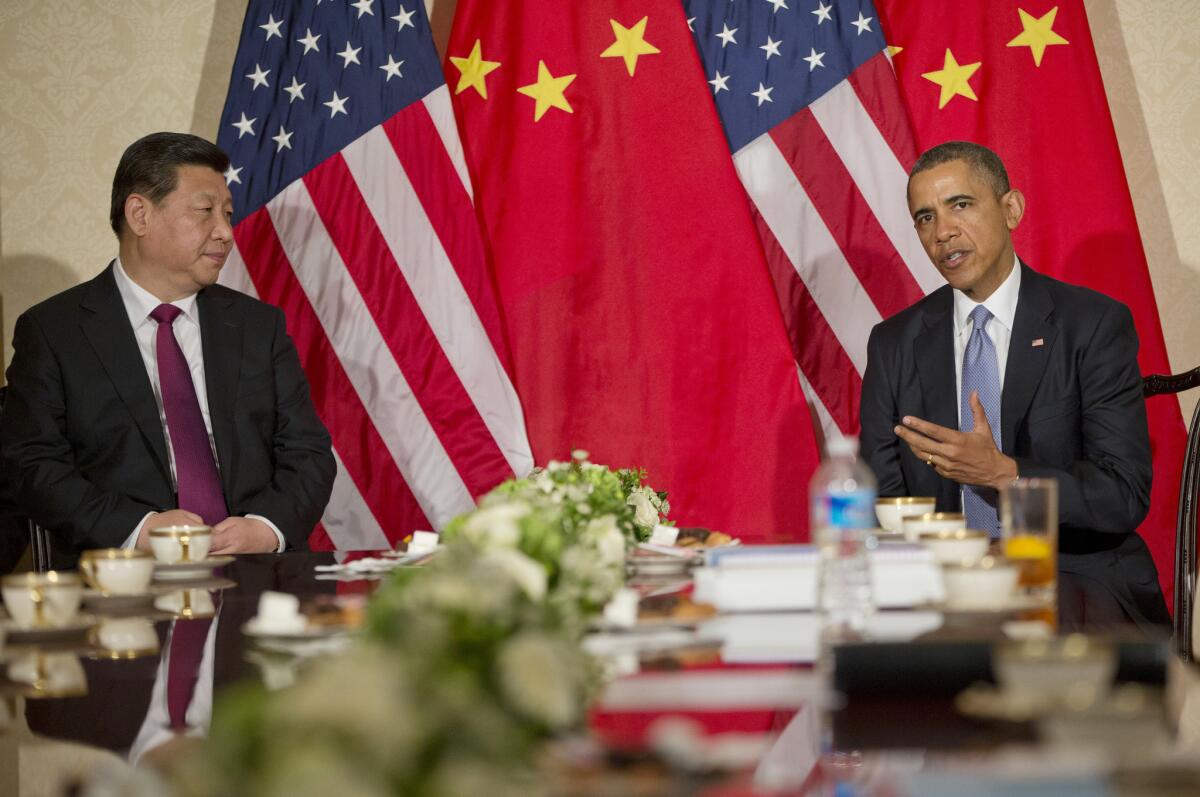Obama defends NSA spying in meeting with Chinese president

- Share via
THE HAGUE, Netherlands — President Obama on Monday defended U.S. surveillance programs as serving national security rather than commercial interests, in a wide-ranging meeting with his Chinese counterpart on the sidelines of a nuclear summit.
In the private session with Chinese President Xi Jinping, Obama defended the National Security Agency’s espionage tactics days after news broke that the U.S. spy agency had tapped into Chinese telecommunication giant Huawei’s computer system. The revelation, stemming from documents leaked by NSA contractor Edward Snowden, appeared to undermine Obama’s regular complaint that Chinese companies conduct corporate espionage and intellectual property theft.
Deputy National Security Advisor Ben Rhodes said Xi raised the matter, which was reported by the New York Times and Der Spiegel on Saturday. The president countered that “the United States does not engage in espionage to gain a commercial advantage,” Rhodes said, adding that Obama said the U.S. believes there’s “a clear distinction between intelligence activities that have a national security purpose and intelligence activities that have a commercial purpose.”
The meeting between Obama and Xi opened on a warm note as the leaders made public statements before their session at the U.S. ambassador’s residence in The Hague.
Obama thanked the Chinese leader for welcoming First Lady Michelle Obama and their daughters on a trip to Beijing this week. Xi thanked Obama for U.S. help in trying to locate the missing Malaysia Airlines plane, which was carrying many Chinese passengers.
The two leaders had a long list of topics to cover, Xi noted.
“It is like a menu, and a rich one at that,” he said.
Also on the list was the crisis in Ukraine. U.S. officials have, so far, largely praised China’s response to Russia’s annexation of the Crimean peninsula. Despite its frequent alliances with Moscow, Beijing abstained from a vote at a United Nations Security Council resolution declaring Crimea’s secession referendum illegal.
U.S. officials have tried to appeal to China’s wariness about outsiders interfering in territorial disputes to push it to align with the West. Given its own territorial disputes, in Tibet, for example, “it’s very much in their interests to stand up for the notion that every nation has a right to make its own decisions,” Rhodes said. “Russia cares a lot about its standing in the world. And it matters if traditional friends of Russia cannot express support for Russia.”
kathleen.hennessey@latimes.com
Twitter: @khennessey
More to Read
Sign up for Essential California
The most important California stories and recommendations in your inbox every morning.
You may occasionally receive promotional content from the Los Angeles Times.














